What I miss about Ramadan in Kashmir
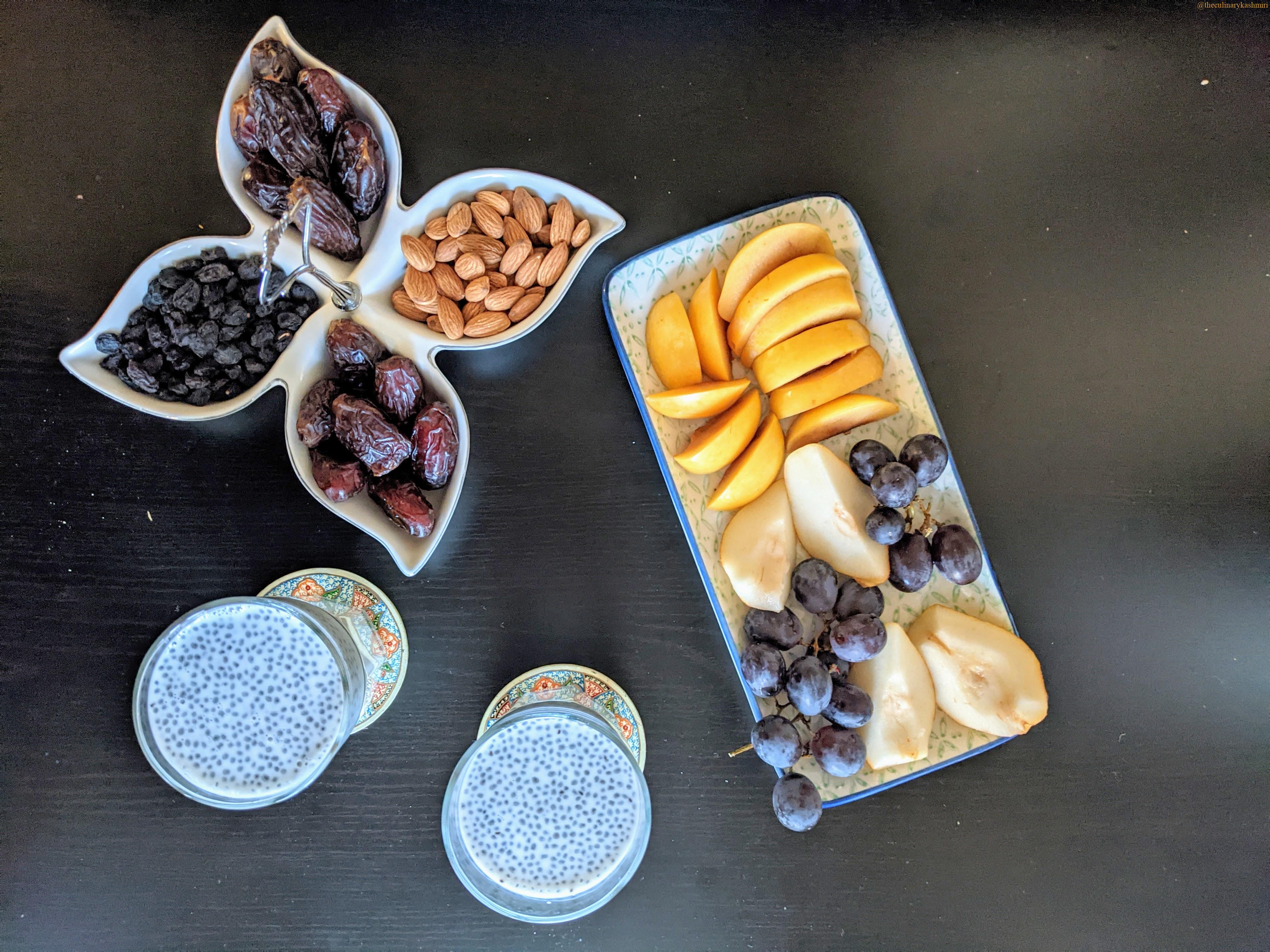
Moving abroad as an adult is a more difficult step practically than it may seem to be theoretically. Having grown up in an altogether different atmosphere, the process of getting acclimatized in the Western society takes a toll on your physical and mental health. I may have grumbled about it before. In fact, this blog owes its existence to my homesickness largely. This homesickness encompasses not just missing my family but my motherland, the culture, everything connected to my heart. This couplet in Urdu by Faiz Ahmad Faiz sums up my emotional state pretty much:
“Dayaar-e-ghair mein mahram agar nahin koi
To ‘Faiz’ zikr-e-vatan apne ru-ba-ru hi sahi“
Today, as we are in the blessed month of Ramadan, I’m sharing some of the things I miss the most about Ramadan in Kashmir.
1. Baang/Adhaan
Obviously, after hearing the beautiful sound of Adhaan five times a day, day after day, every year for nearly three decades, it is the thing one would certainly miss after moving countries. Sure, we have technology but no Android Adhan App can match the aura created by the melodious call to prayer echoing all over the locality. I miss that sound of Adhaan round the year. During Ramadan, I also miss the associated perks of the Masjid loudspeakers, which I might have taken for granted back then. For instance, when spending the last few minutes before iftaar in absurdly checking the phone every two seconds to know the exact time instead of praying peacefully, I miss the announcement of Iftaar over the Masjid loudspeakers. And when there’s loud party music playing in the neighbourhood on Friday nights, I miss the soul touching recitation of Quran during Taraweeh prayers echoing in the silent night.
2. Sahar Khan
Everyone in the world wakes up to an alarm for sahar/suhoor. But in Kashmir, even in the 21st century, there is a Sahar Khan in each locality, doing rounds, beating his drums (and your front gate if you’re lucky), making sure everyone wakes up well in time for a three course meal. Isn’t it amazing? Even my psycho alarm schedule (pictured below) can’t beat it.
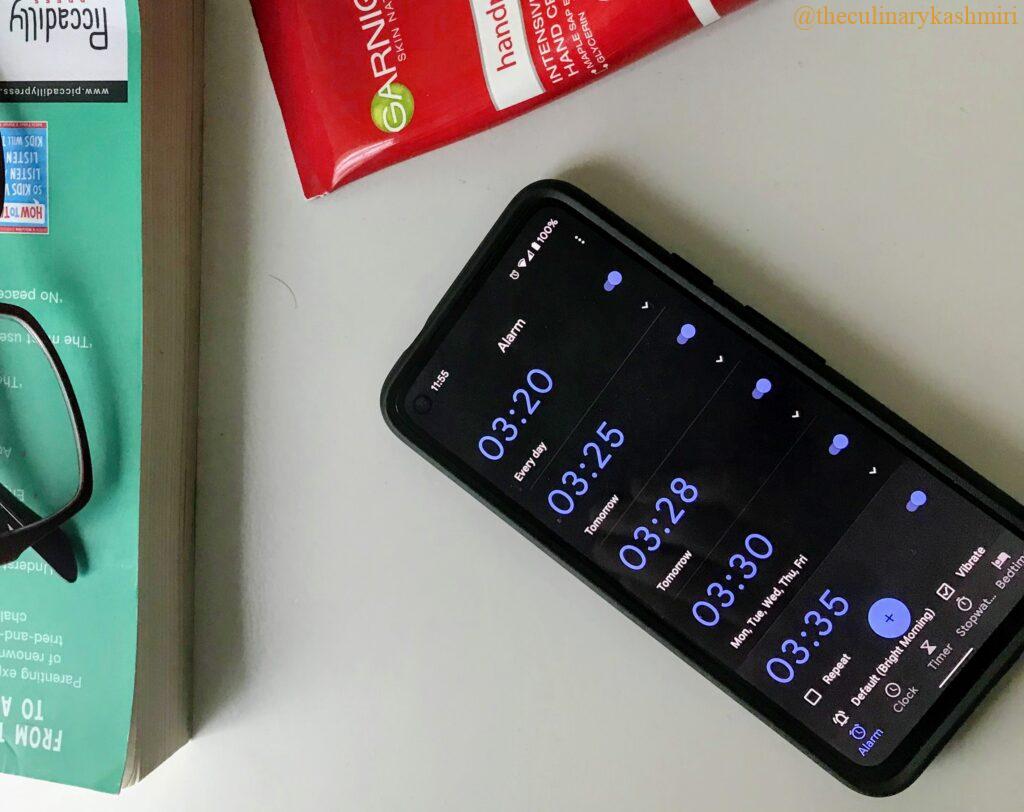
3. Official right to procrastinate
This one is on a lighter note. In Kashmir, everyone around you is fasting and everyone is expected to respect and show regard to a person fasting. As such, we can get away with procrastinating any job we are supposed to do, but just not in a mood to do. We have to simply say, “Waen govv Eez patt Insha Allah [I’ll take it up after Eid, Insha Allah]”, in a polite voice and that’s it. This response is guaranteed to result in no-questions-asked.
4. Ghaev Tchot
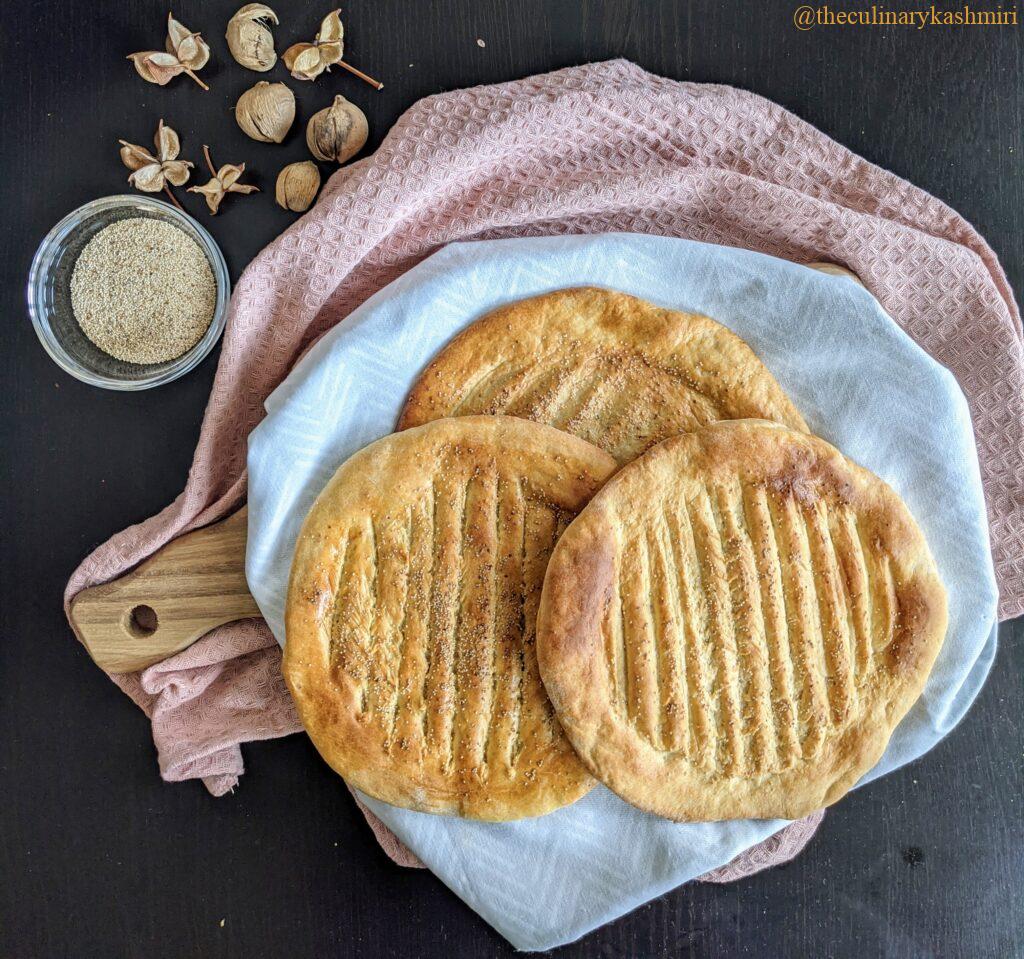
This post would be incomplete without any mention of food. The food I miss the most is Ghaev Tchot: the simplest and the best. I don’t know why but usually Ghaev Tchot is more commonly available during this month than the plain version. It is probably for the fact that Ghee can keep the tchot fresh for longer. So you can buy a basket full of tchot’che at iftaar time and enjoy one or two at sahar time as well, without having to compromise on the taste. Ghaev tchot throughout Ramadan is guilt-free eating at its best because you don’t have an option; the simple tchot is not even available. Talk about a layer of butter on top of the ghaev tchot? Of course, balai lagaye, rozdaaras gassi na natte kamzoori!
Now if you are not in Kashmiri and craving a Ghaev Tchot for iftaar, bake a batch to freeze and relish for a few days. Here’s the recipe.
5. Halw’e and Fireen
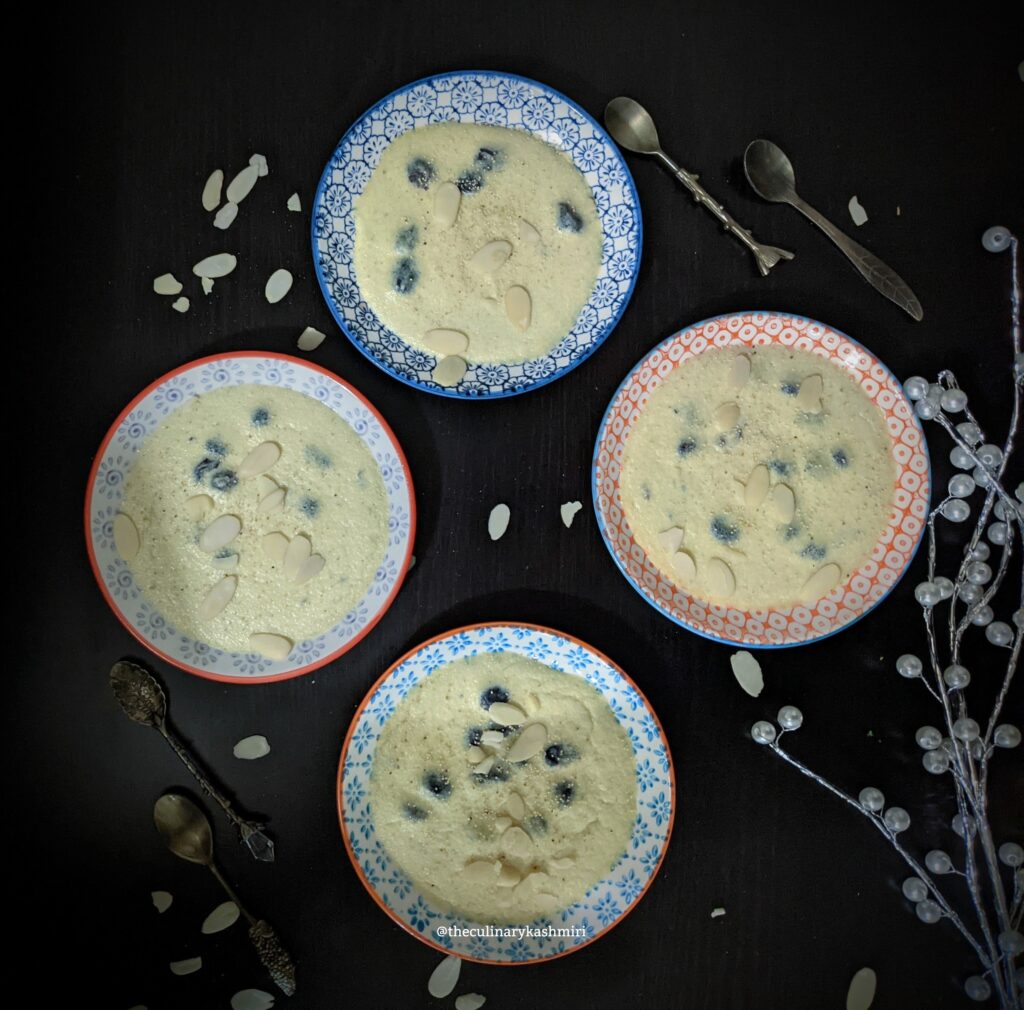
These are our national desserts. At home, my mom made sure that not a single day during Ramadan went by without making us eat at least one “Fireen Riqaeb” post iftaar, no matter how full we were. Well that’s how mothers are. Equally beautiful is the fact that many families in the neighborhood also made sure to send over a box of Halwa or Firni at least once or twice during the Holy month. Halwa and Fireen packed in foil containers would also be distributed in the Masjid and brought home by the men in the family. Every other day they would come back home after Magrib prayers with a surprise in a foil container. I would be excited every time, despite knowing that there was no suspense to it; it could either be Halwa or Firni. Of course, with a different, unknown cook each time, there is a slightly different taste, texture, colour and garnish every time. These boxes of Halwa and Firni are symbolic of the sense of love and heartiness in the community. I miss being a part of this close-knit community.
6. Rooh-afzah
I’m not talking about the sharbat that goes by this name because I have never been a fan. In spite of that, it was so popular during Ramadan that even I would occasionally use it to add flavour to my glass of babre-byoul along with an additional insane amount of sugar (unbelievable now). I’m talking about the general spirit of Ramadan prevalent in Kashmir or any other Muslim country for that matter. Being part of a community where fasting is encouraged and accommodated can make it so much easier to abide by the rules of abstinence. The entire community boasts of a spirit of love, generosity, compassion, mercy and humility. There is not much scope for superficial worldy desires to divert our focus from the spirit of Ramadan. I’m talking about a Rooh-afzah atmosphere, one that uplifts the soul and is enough to bring everyone together righteously in the spirit of the Holy month. I miss this especially as a young parent because here, the entire responsibility of imbibing the values in our children is on our shoulders. Unlike our upbringing in Kashmir, I’m afraid the community will not play any role in this regard here in the West.
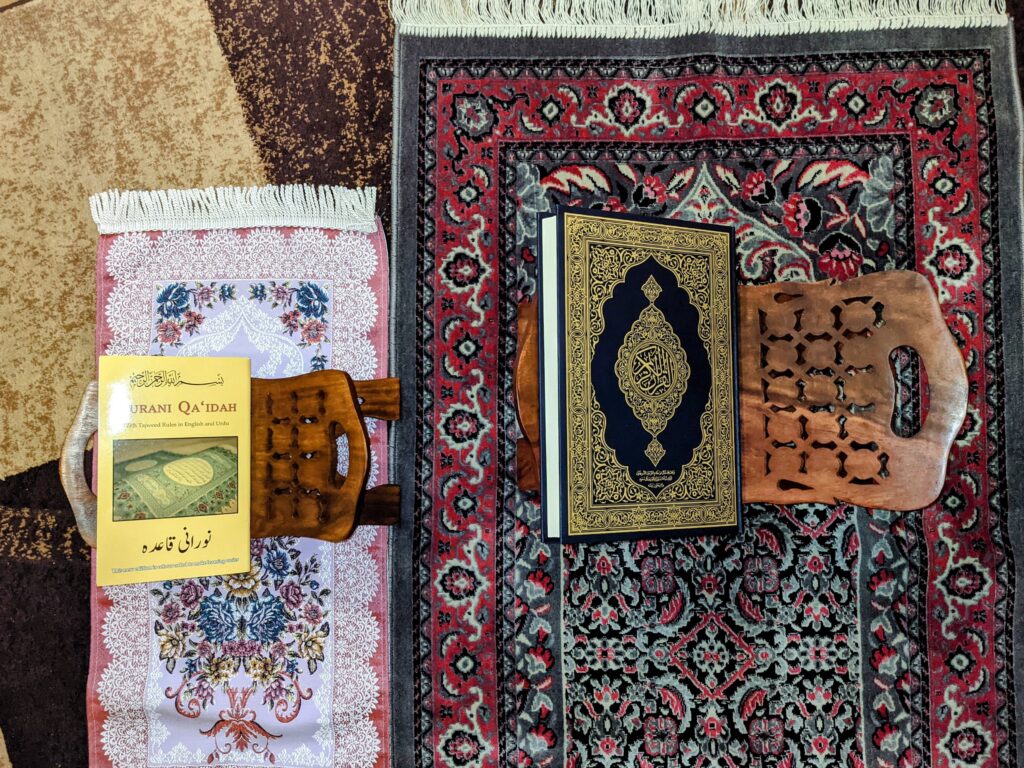
That said, I must not undermine the efforts this country puts in, in attempts to make us minorities feel at home. They even have a dedicated Ramadan special aisle in supermarkets with discounts on many products throughout the month, including Roohafzah-the sharbat! Marketing strategies and all, I get it, but one can surely take a few lessons from them on how to practice inclusivity.
That’s all about the things I find missing in the UK during ramadan. However, one thing is constant for sure, be it in Kashmir or here: Shaitan is all locked up for the month. I read something on my friend’s WhatsApp status that hit me really hard. Here goes- “Do you know why we are happy during Ramadan? Because we are at our best behaviours, doing everything the right way, just as we are supposed to”. Leaving you with those lines to reflect on, I call it a day!
Thank you for taking the time to read this. I would highly appreciate any feedback and recommendations. Also, please follow me on Instagram to stay connected.
